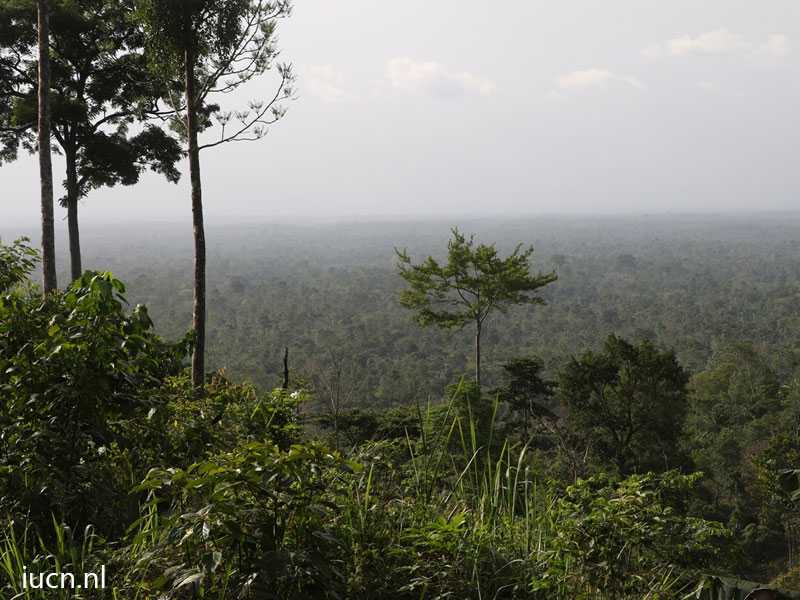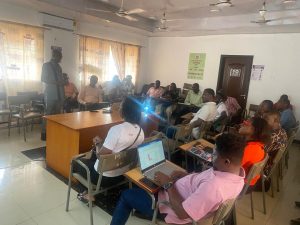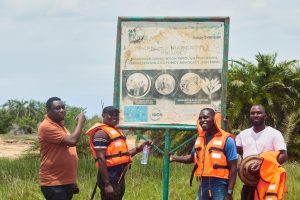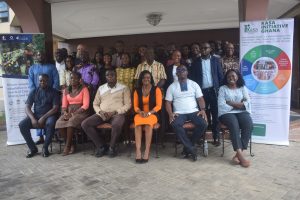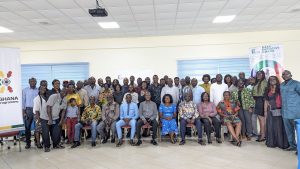The future of Atewa Forest Reserve remains uncertain provoking global environmentalists to intensify unrelenting campaign to save the forest described as exceptional biological importance with the finest upland evergreen forest.
The global environmental campaigners include; A Rocha Ghana, Friends of the Earth, Herp Ghana, Rainforest Trust, Ghana Institute of Foresters, the Netherlands Committee of the International Union for Conservation of Nature and Ghana Wildlife Society.
The campaigners have launched a four-day National Exhibition tagged: “Save Atewa, Securing Atewa for wellbeing and prosperity beyond today,” to draw government’s attention to the danger with the inclusion of Atewa Mountain in the Ghana-Chinese deal.
According to Professor Alfred Apau Oteng-Yeboah Chairman of A ROCHA Ghana, the national exhibition forms part of concerted efforts since 2012 to call Government to abort the quest to mine bauxite at the forest reserve and rather elevate it into a National Park.
“Why should a precious, unique and priceless site such as the Atewa forest be destroyed? Who accounts for the endemic animals and plants, many of which are yet to scientifically discovered and named? Who will follow the removal of rocks which predate our current age? Prof Oteng-Yeboah asked.
Prof Oteng-Yeboah who is a retired Professor, Department of Plant and Environmental Biology, University of Ghana said once the Atewa forest is exploited, the contributions that this natural resource provides to the people of Akyem Abuakwa in particular and to Ghana in general would be lost forever.
“It should be made known that, no jobs will be created with the mining exploitation and the there is no scientific mining anywhere without destruction,” Prof Oteng-Yeboah noted.
Mr Francis Awotwe, a member of the concerned citizens of the Atewa Landscape a non-governmental organisation stated, “Over the years, we have been advocating together with the support of A ROCHA for Atewa forest.
“We are here now with a national exhibition and the most important thing is to call Government rather to elevate the Atewa Forest Reserve into a National Park.”
He explained that the campaign for Atewa was not because of Government’s decision to mine bauxite over there but this advocacy had gone on long ago.
He also urged government to consider other economic options instead of mining bauxite in the forest that would destroy it. “A National Park with a surrounding buffer zone has better economic advantages than the bauxite mining.
“So the economic analysis shows us that the mining option is not the best looking at the economic benefits Government is going to get.”
“We are therefore asking Government to elevate Atewa Forest to the status of the National Park with buffer zones around it,which key businesses would be invested in to provide sustained secure job for the teaming masses for the use of the landscape.
Mr Seth Appiah-Kubi, National Director, A ROCHA Ghana said significant opportunities existed to enhance the water provisioning services of the Atewa Forest, ensure sustainable management of the forest by upgrading it to a national park.
He said such an elevation would position Eastern Region as the hottest tourism destination in Ghana.
“A green development pathway would only thrive and build prosperity if government rescinds all plans to exploit the bauxite in Atewa, and focus on building green jobs, through a thriving organic cocoa production and processing value chain, supported by community incentives to secure good quality water for the downstream users,” Mr Appiah-Kubi stated.
Source: GNA

